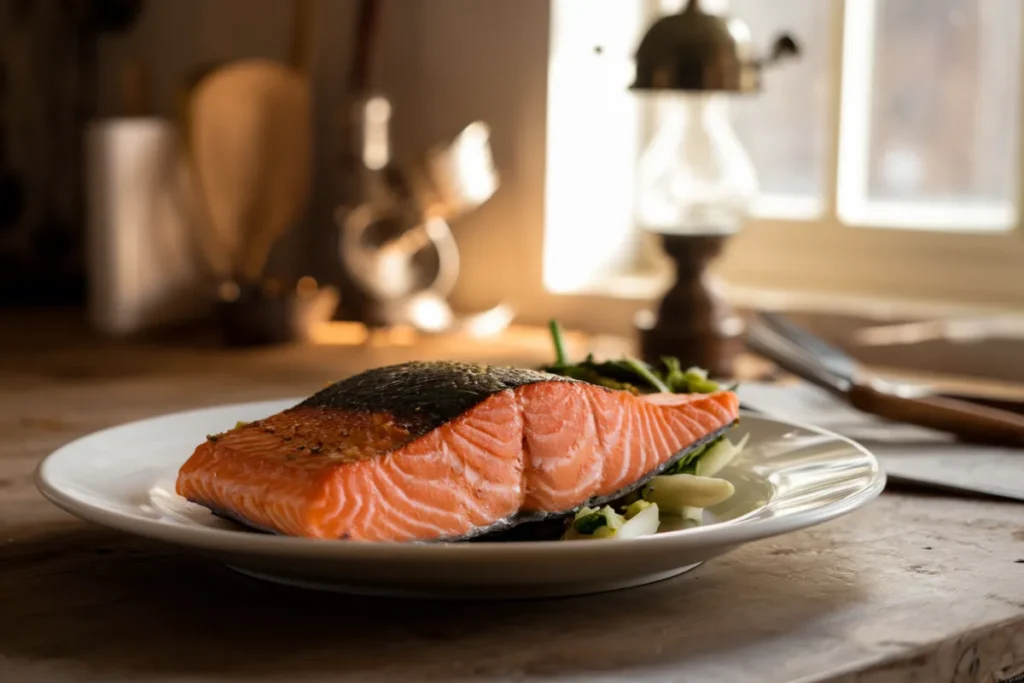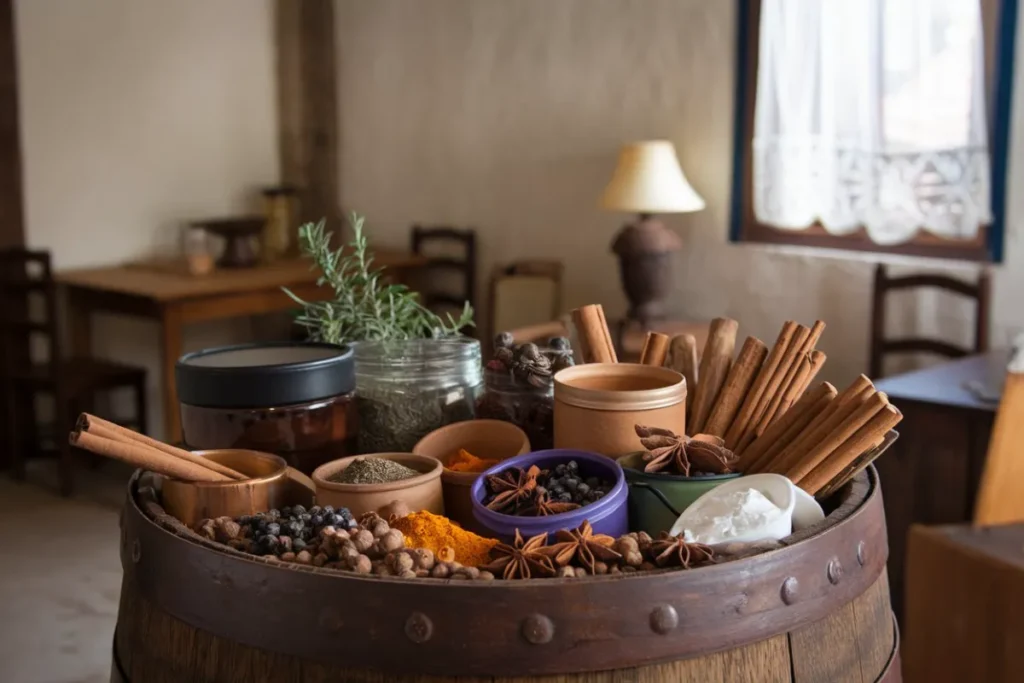Salmon is a culinary favorite around the world, celebrated for its rich texture and mild flavor. However, simply cooking salmon without considering how to enhance its natural taste may leave the dish feeling flat. By focusing on the right ingredients, techniques, and pairings, you can transform salmon into a flavor-packed masterpiece. Whether you’re grilling, baking, or smoking, knowing what enhances the flavor of salmon can take your cooking to the next level.
The Natural Flavor Profile of Salmon
Before diving into flavor enhancement, it’s essential to understand salmon’s natural flavor profile. Salmon is known for its rich, buttery, and slightly oily taste, which makes it a versatile fish. However, this flavor can vary depending on the type of salmon.
- Wild-caught salmon tends to have a stronger, more complex flavor.
- Farm-raised salmon is milder and often fattier, which may require different flavoring approaches.
If you’re unsure which type of salmon works best for you, consider both the nutritional benefits and flavor. For more details on the health benefits of eating salmon, check out this helpful guide.
Key Factors That Influence Salmon Flavor

Several factors contribute to the final flavor of your salmon dish. Understanding these elements ensures you start with a solid foundation before adding seasonings and marinades.
- Quality of the Salmon: Wild-caught salmon is usually more flavorful due to its natural diet. On the other hand, farm-raised salmon is often cheaper and more accessible.
- Freshness: Always choose the freshest salmon possible, whether wild or farm-raised. Fresher fish retains more of its natural flavor.
- Cooking Method: Your method of cooking—whether grilling, baking, or pan-searing—plays a crucial role in how the fish tastes. Grilling, for instance, adds a smoky flavor, while baking allows the fish to retain its natural oils.
To achieve the best flavor when smoking salmon, it’s important to follow proper smoking techniques. Learn more about how to do that from this expert guide on smoked salmon.
Enhancing Flavor with Marinades and Rubs
One of the best ways to elevate the flavor of salmon is by using marinades or dry rubs. Marinades, in particular, help tenderize the fish and allow flavors to seep deep into its flesh. A good marinade includes the following:
- Acids: Lemon juice, lime juice, or vinegar to brighten the flavor.
- Oils: Olive oil or sesame oil to add richness.
- Aromatics: Garlic, ginger, or herbs like dill or parsley.
For a savory, umami-packed marinade, miso is an excellent choice. You can learn how to make a delicious miso-based marinade by following this Miso Salmon Recipe.
Marinades should be left on the fish for at least 30 minutes, though some people prefer to marinate overnight. A simple yet delicious marinade consists of soy sauce, honey, lemon juice, and minced garlic.
For those who prefer a quicker method, a dry rub works equally well. Rubs consist of spices like paprika, cumin, and black pepper, which can enhance the fish’s natural oils without overpowering the delicate flavor.
Incorporating Herbs and Spices

Herbs and spices play a major role in enhancing salmon flavor. Certain herbs are perfect for bringing out the best in salmon, while spices add complexity without overwhelming the fish.
- Herbs that complement salmon:
- Dill, with its fresh, slightly bitter notes, is a classic pairing.
- Parsley adds a clean, bright flavor.
- Rosemary works well when grilling salmon due to its robust aroma.
- Spices that elevate the taste:
- Paprika adds a subtle smokiness.
- Cayenne pepper gives the fish a slight kick without overwhelming it.
- Cumin provides warmth and earthiness, balancing out the richness of the fish.
Fresh herbs tend to offer a more vibrant flavor, but dried herbs can work in a pinch—just remember that dried herbs are more concentrated, so you’ll need less.
Citrus as a Flavor Enhancer for Salmon
If you want to lighten the richness of salmon, citrus fruits are your best friend. Citrus, like lemon, lime, and even orange, adds brightness that cuts through the natural oils in the fish, making it taste lighter and more refreshing. Here’s how you can incorporate citrus into your dish:
- Lemon zest and juice: These are the most common ways to use lemon with salmon, as they add both aroma and acidity.
- Lime slices: Laying lime slices on the salmon while it cooks releases its oils into the fish, offering a tangy finish.
- Orange zest: For a slightly sweeter twist, orange zest works beautifully with grilled salmon.
Using citrus not only adds flavor but also helps to keep the salmon moist while cooking.
The Role of Butter, Oils, and Fats

Salmon is naturally rich in healthy fats, but adding a bit of butter or oil can enhance its flavor even more. The right fats will enrich the fish without making it overly greasy.
- Butter: A small pat of butter melts into the salmon and pairs well with fresh herbs like dill or thyme. You can even make compound butters by mixing butter with garlic and herbs to give the dish extra depth.
- Olive oil: Drizzling olive oil over salmon before cooking adds a rich, fruity note that complements the fish’s natural oils. It’s also a healthier alternative to butter, especially when you want to keep the dish light.
- Other oils: Avocado oil is another great choice due to its high smoke point, which makes it ideal for grilling or pan-searing.
These fats help seal in the salmon’s natural juices, keeping it tender and flavorful.
With this foundational knowledge, you’re well on your way to cooking the most flavorful salmon possible. Each of these techniques and ingredients—whether it’s citrus, herbs, or marinades—can bring out the best in this delicious fish.


